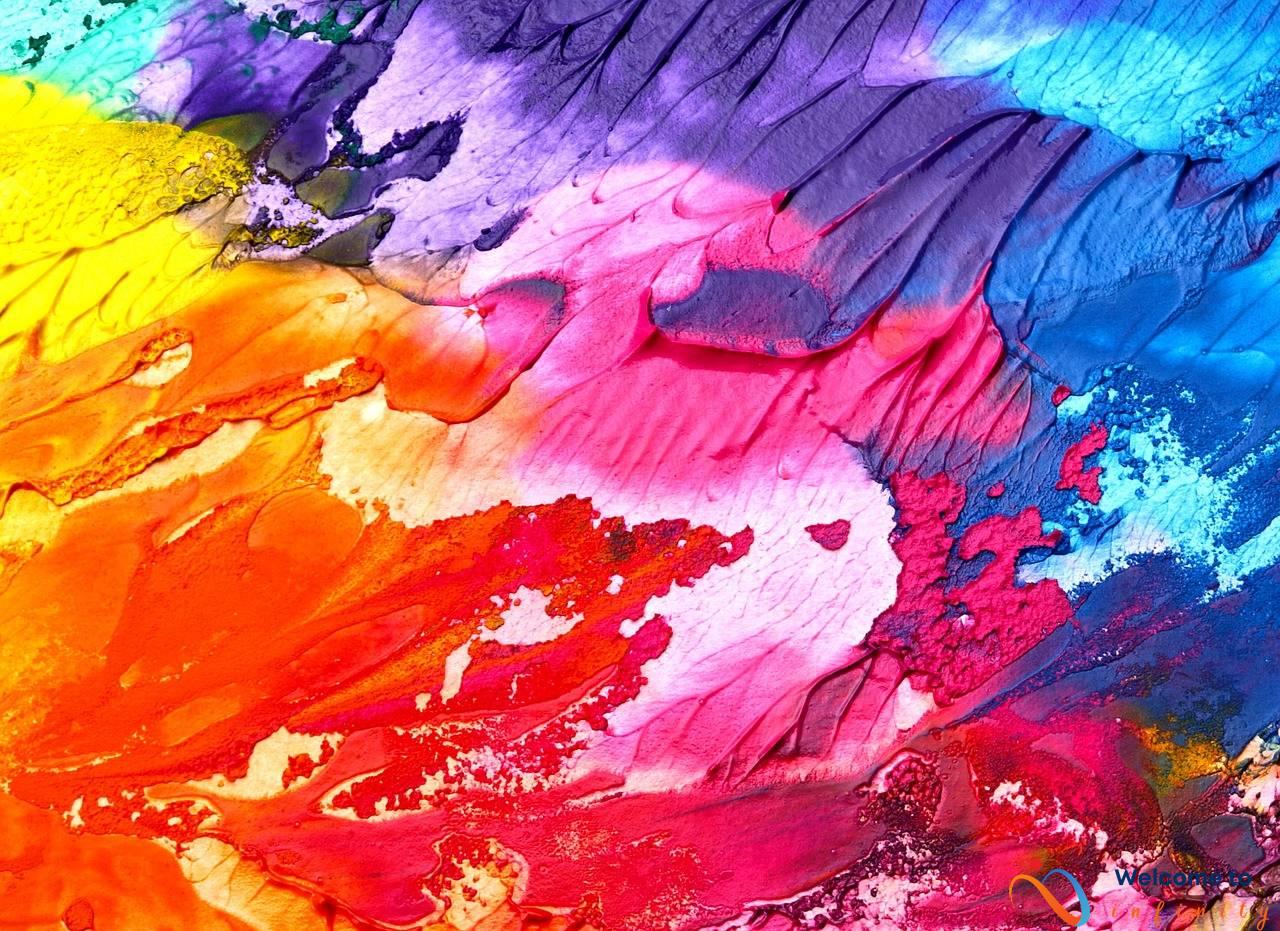Collagen is an essential protein that is responsible for maintaining the skin's elasticity and youthfulness. As we age, our collagen production decreases, leading to fine lines and wrinkles. However, with the help of anti-aging skincare products, it is possible to boost the skin's natural collagen production, resulting in a more youthful appearance.
Anti-aging skincare products are specially formulated to target the signs of aging and stimulate collagen production. They contain ingredients like retinol and vitamin C, which are known to promote collagen production and improve skin texture.
Retinol is a form of vitamin A that works by increasing cell turnover and stimulating collagen production. It also helps to reduce the appearance of fine lines and wrinkles, making it an essential ingredient in many anti-aging skincare products.
Vitamin C is another powerful ingredient that not only stimulates collagen production but also protects against collagen breakdown caused by UV exposure. It also has antioxidant properties that help to protect the skin from free radical damage, which can contribute to aging.
In addition to anti-aging skincare products, there are other strategies you can use to support collagen production, such as facial massage and reducing stress. Facial massage can help to increase blood flow and stimulate collagen production, while reducing stress can help to improve overall skin health and support collagen production.
Overall, if you want to maintain youthful, radiant skin, it is crucial to support your skin's natural collagen production. By incorporating anti-aging skincare products into your routine and adopting other collagen-boosting strategies, you can achieve the youthful, vibrant skin you've always dreamed of.
What is Collagen?
Collagen is a protein found naturally in the body that plays a critical role in maintaining youthful skin. It is responsible for providing structure and elasticity to the skin, as well as helping it retain moisture. Collagen production naturally slows as we age, which can result in wrinkles and sagging skin.
Because of its importance in skin health and appearance, many anti-aging skincare products are formulated to help increase collagen production. These products can help replenish lost collagen and promote the production of new collagen, resulting in a more youthful and radiant complexion.
In addition to its benefits for the skin, collagen is also important for the health of other connective tissues in the body, such as ligaments, tendons, and cartilage. Supplementing with collagen or using collagen-rich skincare products may help support joint health and promote overall wellness.
- Collagen is a vital protein that plays a crucial role in maintaining youthful and healthy skin
- Collagen production slows down naturally as we age, leading to wrinkles and sagging skin
- Anti-aging skincare products can help increase collagen production and improve the appearance of the skin
- Collagen is also important for joint health and overall wellness
In conclusion, collagen is a fundamental protein that is essential for maintaining youthful and healthy skin. Incorporating anti-aging skincare products that support collagen production into your routine can help improve the appearance and health of your skin, while also providing benefits for other areas of the body.
Factors that Decrease Collagen Production
Collagen is a protein that is naturally produced by the body and is responsible for maintaining the elasticity and firmness of our skin. However, as we age, our body's natural collagen production decreases, resulting in wrinkles, fine lines, and sagging skin. In addition to aging, several lifestyle and environmental factors can negatively impact collagen production.
One of the major factors that contribute to the breakdown of collagen is UV exposure. Prolonged exposure to the sun's harmful UV rays can lead to collagen breakdown, resulting in a loss of skin elasticity. To protect your skin from UV damage, it is essential to wear sunscreen with a high SPF rating and limit your exposure to the sun.
Another lifestyle factor that can negatively impact collagen production is poor diet and smoking. A diet that is high in sugar and processed foods can lead to inflammation, which can break down collagen fibers. Smoking, on the other hand, can constrict blood vessels, reducing blood flow and oxygen to the skin, which can also lead to collagen breakdown.
Other environmental factors that can negatively impact collagen production include pollution and free radicals. Pollution can lead to the production of free radicals in the skin, which can break down collagen fibers. To protect your skin from pollution, it is essential to cleanse your skin thoroughly and use skincare products that contain antioxidants.
In addition to lifestyle and environmental factors, hormonal changes can also impact collagen production. As women approach menopause, their estrogen levels decrease, leading to a decrease in collagen production. To counteract this, it is essential to use skincare products that can help stimulate collagen production, such as those containing retinol and vitamin C.
By understanding the factors that can negatively impact collagen production, you can take steps to protect your skin and prevent premature aging. In addition to using anti-aging skincare products, you can also take steps such as reducing stress, eating a healthy diet, and avoiding smoking and excessive UV exposure. By taking care of your skin, you can maintain a youthful, healthy glow for years to come.
UV Exposure
UV rays, a type of electromagnetic radiation emitted by the sun, are the leading cause of premature aging. When exposed to UV radiation, our skin produces enzymes that break down collagen and elastin, two proteins that maintain the skin's elasticity and firmness. As a result, the skin loses its texture and tone, causing wrinkles and sagging.
UV rays damage collagen fibers by creating harmful free radicals that destroy the skin's structure. These free radicals damage the skin's DNA, which can lead to mutations and, in severe cases, skin cancer. Prolonged UV exposure not only breaks down existing collagen but also impairs the skin's ability to produce new collagen, accelerating the aging process.
To protect against UV radiation, a broad-spectrum sunscreen should be applied daily. Additionally, limiting exposure to the sun during peak hours, wearing protective clothing such as a wide-brimmed hat and sunglasses, and avoiding tanning beds can help prevent further damage to collagen and other skin proteins.
In conclusion, UV exposure is a significant contributor to collagen breakdown, leading to premature aging signs such as wrinkles and sagging skin. By protecting the skin from UV radiation, we can slow down collagen loss and maintain a youthful appearance.
Poor Diet and Smoking
Collagen production can be negatively impacted by factors such as smoking and an unhealthy diet. Smoking introduces harmful toxins and free radicals into the body, which can break down collagen and lead to premature aging. Additionally, consuming foods that are high in sugar and unhealthy fats can promote inflammation, which also contributes to collagen breakdown.
Furthermore, a diet lacking in necessary nutrients can hinder collagen production. Nutrients like vitamin C, zinc, and copper all play a vital role in collagen synthesis. Without these nutrients, the body may struggle to produce and maintain healthy collagen levels.
In order to support collagen production and maintain youthful skin, it's important to focus on a healthy diet rich in nutrient-dense whole foods. This means incorporating plenty of fruits, vegetables, lean protein, and healthy fats into your diet, while limiting processed and sugary foods. Additionally, quitting smoking can have numerous benefits for skin health and overall well-being.
If you're struggling to get enough of these vital nutrients through your diet alone, supplements can also be a helpful addition. However, it's important to speak with a healthcare professional before starting any new supplement regimen.
How Anti-Aging Skincare Increases Collagen Production
Anti-aging skincare products can work wonders in stimulating collagen production, resulting in firmer and more youthful-looking skin. Two of the most popular ingredients found in anti-aging skincare are retinol and vitamin C, both of which have been proven to increase collagen production.
Retinol, also known as vitamin A, is a powerful ingredient that can help to stimulate the production of collagen. It works by promoting the production of new skin cells, which in turn leads to an increase in collagen production. Retinol is also effective in reducing the appearance of fine lines and wrinkles on the skin.
Vitamin C is another popular ingredient found in anti-aging skincare products. It is an antioxidant that helps to protect against collagen breakdown caused by environmental factors such as UV exposure. Vitamin C also stimulates collagen production, helping to maintain skin's elasticity and firmness.
When using anti-aging skincare products that contain retinol and vitamin C, it is important to note that they may cause minor irritation to the skin. It is recommended to start with a low concentration of the product and gradually increase the concentration over time to allow the skin to adjust.
Other beneficial ingredients that can help to stimulate collagen production include peptides, hyaluronic acid, and niacinamide. Incorporating these ingredients into your skincare routine can have a noticeable impact on the overall appearance and health of your skin.
In addition to using anti-aging skincare products, it is important to maintain a healthy lifestyle to support collagen production. This includes eating a nutritious diet, staying hydrated, and getting enough sleep. Regular facial massage can also help to stimulate collagen production and improve the overall tone and texture of the skin.
Overall, incorporating anti-aging skincare products that contain ingredients such as retinol and vitamin C, along with a healthy lifestyle, can help to increase collagen production and maintain youthful-looking skin.
Retinol
Retinol is a form of vitamin A that is commonly used in anti-aging skincare products due to its ability to stimulate collagen production. Collagen is a protein that is naturally produced by the body and is responsible for maintaining the skin's elasticity and firmness. As we age, our collagen production decreases, leading to the formation of wrinkles, fine lines, and sagging skin.
Retinol works by penetrating the skin's surface and binding to specific receptors on skin cells called retinoid receptors. When these receptors are activated, they stimulate collagen production, which helps to improve the skin's texture and reduce the signs of aging. In addition to increasing collagen production, retinol also helps to exfoliate the skin, unclog pores, and reduce hyperpigmentation.
It is important to note that retinol can be irritating to some people, especially those with sensitive skin. To minimize the risk of irritation, it is recommended to start with a low concentration of retinol and gradually increase over time. It is also important to use sunscreen daily when using retinol, as it can make the skin more sensitive to UV rays.
In summary, retinol is an effective ingredient in anti-aging skincare products due to its ability to stimulate collagen production and improve skin texture. It is important to use caution when using retinol and to start with a low concentration to minimize the risk of irritation.
Vitamin C
Vitamin C is a powerful antioxidant that can help protect collagen from breaking down due to free radical damage. It also plays a key role in collagen production. Collagen fibers require vitamin C to link together and form a strong, stable structure. Without enough vitamin C, collagen production can slow down, leading to wrinkles, sagging skin, and other signs of aging.
In addition to supporting collagen production, vitamin C also has other benefits for the skin. It can help brighten dark spots and uneven skin tone, and it has anti-inflammatory properties that can help reduce redness and irritation. Some studies have even shown that topical vitamin C can protect the skin from UV damage and improve the skin's natural defense against harmful environmental factors.
To maximize the benefits of vitamin C for your skin, look for products that contain a stable, bioavailable form of vitamin C, such as ascorbic acid or sodium ascorbyl phosphate. These forms of vitamin C are better able to penetrate the skin and deliver the potent antioxidant benefits directly to the cells that need it most.
You can also increase your intake of vitamin C through your diet. Citrus fruits, berries, kiwi, peppers, and broccoli are all great sources of vitamin C. To supplement your diet, consider taking a daily vitamin C supplement, but always consult with your healthcare provider before adding any new supplements to your routine.
Overall, vitamin C is an essential nutrient for healthy, youthful-looking skin. By incorporating vitamin-C rich foods into your diet and using skincare products that contain vitamin C, you can help protect your skin from premature aging and support the production of firm, plump, glowing collagen.
Other Anti-Aging Strategies
In addition to using anti-aging skincare products with ingredients like retinol and vitamin C, there are other strategies you can use to support collagen production and maintain youthful skin. One such strategy is facial massage. By gently massaging your face, you can stimulate blood flow and collagen production, which helps improve skin tone and reduce fine lines and wrinkles.
Another important strategy for supporting collagen production and maintaining healthy skin is to reduce stress. When you're stressed, your body releases cortisol, which can lead to decreased collagen production and increased inflammation in the skin. By practicing stress-reducing activities like yoga, meditation, or simply taking time to relax, you can support collagen production and maintain healthy, youthful-looking skin.
In addition to these strategies, it's important to maintain a healthy diet rich in antioxidants and vitamins that support skin health and collagen production. Drinking plenty of water and getting enough sleep can also help keep your skin looking young and healthy.
Overall, supporting collagen production is an important aspect of maintaining youthful, healthy skin. By using skin care products with collagen-supporting ingredients, practicing stress-reducing activities, and maintaining a healthy lifestyle, you can keep your skin looking its best for years to come.
Facial Massage
Facial massage is one of the most effective techniques that can help stimulate collagen production, leading to improved skin elasticity and texture. When performed regularly, it can also help improve blood circulation, which in turn enhances nutrient delivery to the skin cells and removes toxins from the body.
During a facial massage, the pressure applied to the skin helps to break down the fibrous tissues that cause the skin to appear dull and tired. It also helps to stimulate the lymphatic system, which plays a crucial role in removing excess fluid and waste products from the body. As a result, facial massage can help reduce puffiness and dark circles under the eyes and enhance the overall glow of the skin.
To get the most out of your facial massage, it's important to choose the right products. Look for a facial oil or cream that contains natural ingredients like jojoba oil, almond oil, or shea butter. These ingredients help to hydrate and nourish the skin, making it more supple and resilient.
When performing a facial massage, use gentle strokes and avoid pulling or tugging at the skin. Start at the base of the neck and work your way up towards the forehead, using circular motions and light pressure. You can also incorporate different massage techniques, such as tapping, pinching, and kneading, depending on your needs.
Regular facial massage, along with a healthy diet and lifestyle, can help boost collagen production, leading to a more youthful and radiant complexion. So, if you're looking for a natural and non-invasive way to improve your skin's texture and tone, consider incorporating facial massage into your daily skincare routine.
Reducing Stress
Stress can negatively affect skin health and reduce collagen production. When we experience stress, our body produces cortisol, a hormone that can break down collagen. High cortisol levels also increase inflammation, which can damage collagen and elastin fibers. By reducing stress levels, we can help prevent collagen breakdown and support healthier, more youthful-looking skin.
There are several strategies to reduce stress, including exercise, meditation, and deep breathing. Exercise has been shown to reduce cortisol levels and improve collagen production. Meditation and deep breathing can also be effective stress-reducing techniques, as they promote relaxation and lower cortisol levels.
Another effective way to reduce stress is through self-care practices, such as taking a warm bath, getting a massage, or even taking a relaxing walk in nature. These activities can help lower cortisol levels and promote overall skin health.
Additionally, getting enough sleep is crucial for reducing stress and supporting healthy skin. When we don't get enough sleep, cortisol levels can rise, leading to collagen breakdown and accelerated aging. Aim for 7-9 hours of sleep per night to help promote collagen production and overall skin health.
- In summary, reducing stress is an important strategy for supporting collagen production and promoting healthier, more youthful-looking skin.
Conclusion
Collagen is an essential protein in our skin that helps maintain a youthful and healthy appearance. However, as we age, collagen production decreases, causing fine lines, wrinkles, and sagging skin. It is vital to take care of our skin and support collagen production to minimize the signs of aging.
Anti-aging skincare products are designed to help increase collagen production and protect against collagen breakdown. Ingredients like retinol and vitamin C have been shown to stimulate collagen production and improve skin texture and tone. By incorporating these products into our skincare routine, we can help maintain youthful skin and reduce the visible signs of aging.
Other anti-aging strategies like facial massage and reducing stress can also support collagen production. Facial massage can help stimulate blood flow to the skin, improving oxygen and nutrient delivery, and reducing stress can help prevent collagen breakdown and improve overall skin health.
In conclusion, supporting collagen production is essential in maintaining youthful skin. Anti-aging skincare products, along with other lifestyle habits and strategies, can help support collagen production and reduce the signs of aging. By taking care of our skin and prioritizing collagen production, we can achieve a more youthful and vibrant appearance for years to come.












